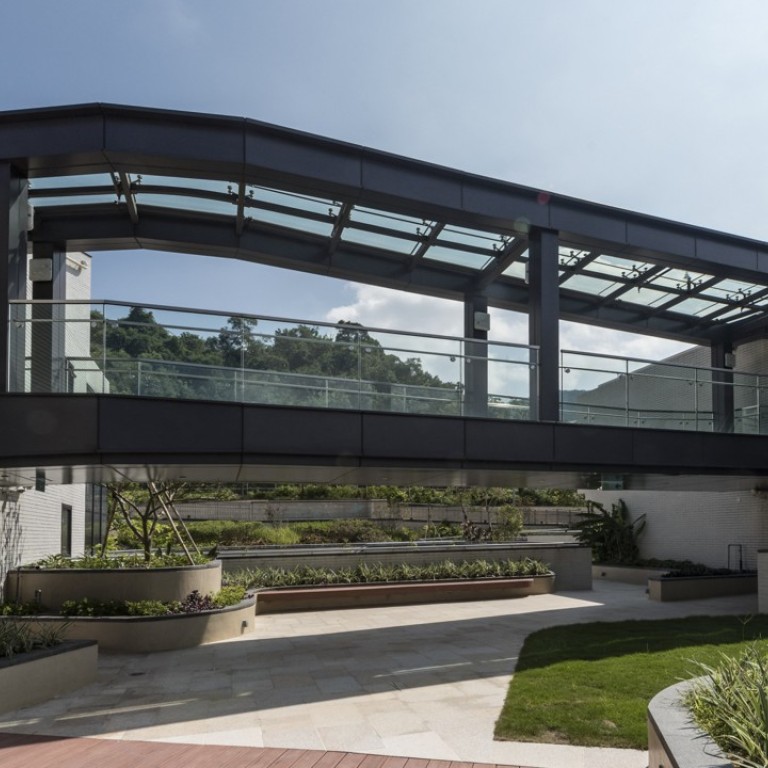
Letters to the Editor, October 30, 2017
End-of-life care still neglected in ageing city
My father died early this year in Hong Kong from cancer. The lives of family members were turned upside down when we were told he was in the final stages of cancer.
Like others receiving news like this, we were devastated and had no idea what to do, nor had we any prior knowledge about end-of-life care, except sending him to a hospital.
It was distressing to watch as his health deteriorated and to see the dying cooped up in hospital wards, unable to have the peace and quiet they deserved in their final days.
We were fortunate to finally see light at the end of the tunnel when a friend told us about the Jockey Club Home for Hospice (JCHH), which had just opened.
After consultations with the doctors, my father was admitted to JCHH, where he spent his final days.
I am particularly grateful for the help and care given by the home care professionals to him and my family. During his stay, there was regular communication between the medical staff and my family over his condition. The hospice provided a private and tranquil environment that truly allows the dying to spend their final days with dignity.
Coping with loss is a difficult journey. After the passing of my father, my mum and I continued to see JCHH’s in-house social worker. This one-year committed support service provided by JCHH has helped my family to gradually recover from grief.
Although Hong Kong is renowned for its world-class medical professionals and advanced health care system, it is ironic to see the lack of education on how to deal with death.
With the sharp growth in Hong Kong’s elderly population, it is of paramount importance to promote death education actively to the public.
Our society values the quality of life, but what about the quality of death?
Michael Leung, Kowloon
Elite athletes need more financial help
Sport is becoming increasingly popular in Hong Kong. Schools do far more now to promote sports and to get their pupils involved so that they can lead healthier lives.
The government should respond to this positive change in attitude by building more sports facilities to meet demand and doing so for a variety of sports, not just the most popular ones.
For example, top local speed roller skater Vanessa Natalie Wong has complained about the lack of indoor areas for roller skating. So, if the weather is bad, she and her fellow skaters cannot train.
Compared to other governments, the administration in Hong Kong does not put sufficient resources into sport and often our elite athletes do not get enough financial support.
Some of them have to pay their own expenses if they are going abroad for a competition, including flights and hotels.
They may also have difficulty finding professional trainers they can work with here.
Without sufficient government support, it is more difficult for them to do well in competitions abroad. I definitely think more indoor facilities are needed for our elite athletes to train.
Wong Hiu-yan, Tseung Kwan O
Massive tunnel plan could be bad for villages
However, a lot of material will have to be used and intricate planning will be needed to ensure there is no environmental damage to sensitive areas.
If ecosystems are badly damaged, this can put wildlife at risk. It would not be acceptable if their habitats were lost.
I am also concerned about villages on the route of the tunnel that could be adversely affected by such an enormous infrastructure project. The central government must ensure that livelihoods are not at risk.
There will be a lot of villages over such a large area. If they have to be relocated, the central government must ensure that they get the help they need.
As I said, a project this large needs meticulous planning.
Oscar Au Yeung, Po Lam
Living in slums sure to harm mental health
I agree with those who say that the city’s housing problems are the source of stress for many Hongkongers.
The government is trying to tackle these problems, but many residents, such as those on low incomes, are put under great pressure because of their living conditions, especially if they are tenants of subdivided flats.
As a society, we are failing to pay enough attention to the toll such conditions can take on people’s mental health.
When I try to put myself in their shoes, I cannot imagine how I would be able to cope with such a home. We are all entitled to lead our lives with dignity and the poor do not like being labelled as underprivileged.
A home should be a place where you can relax, but this is impossible in subdivided flats, which are hot in the summer and cold in winter. Living in such conditions, some citizens are close to breaking point.
More land must be found on which to build affordable housing, such as brownfield sites and the areas bordering country parks.
Helen Woo, Yau Yat Chuen

